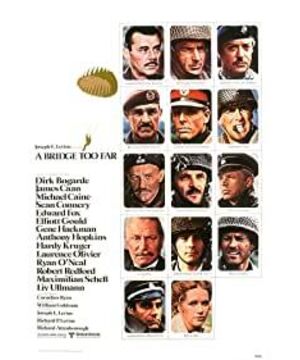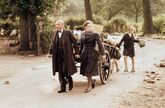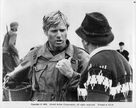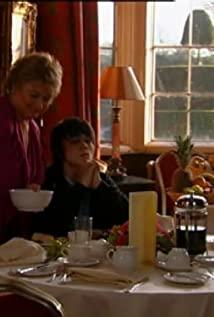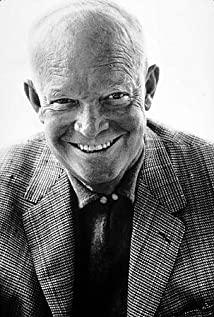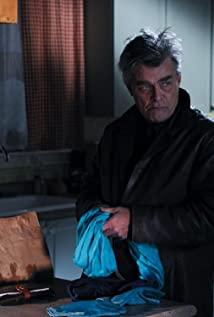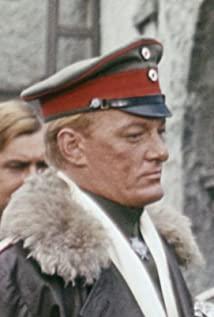Personally, there is not much difference between "Distant Bridge" and real war history. It is a very good historical film of World War II. To be honest, the "market garden" operation (PS: from the name of this operation, "market garden", co-authored the rear of the German army as its own back garden. I really don't think of myself as an outsider, don’t be optimistic about the battle situation). Yes. No brains at all!) is the product of Montgomery's victory over the brains. It can be said to be a very rubbish combat plan. In fact, since the landing of a million Allied forces in Normandy in June 1944, not only Montgomery, but also many other Allied generals have felt too good about themselves. They all felt that the Germans had been stumbling in a few days, and they all felt that they were drinking horses on the Rhine. , The flag of Berlin is just around the corner, and I think it’s time to end the war before Christmas in 1944 and go home for Christmas. In fact, after the Allied forces landed in Normandy, the form of the battlefield on the Western Front could easily make people misjudge the situation. Since the Allied forces landed in Normandy, although the German forces on the Western Front have won many tactical victories, strategically, the German forces have been retreating and failing continuously. At the same time, due to the domestic bombardment of thousands of planes by the US and British Air Forces, Germany's production and life have been greatly affected; on the Eastern Front, the German army will fight to the death and bloody battle with the Soviet army. Judging from the overall strategic situation, Germany is close to the brink of collapse. Moreover, the Normandy landing completely plunged Germany into a strategic passivity. Why do you say that? Because since the start of the Soviet-German War on June 22, 1941, the relatively peaceful Western Front can be said to have been regarded as a strategic rear by the Germans. A large number of elite troops such as the "Qing Brigade" division were transferred to the eastern battlefield and the Soviet army smashed, and the eastern battlefield and the disabled troops on the southern battlefield were transferred to the western front for rest, replenishment, and refurbishment. Moreover, due to the relative calmness of the western front, the German troops stationed on the western front are all second-line troops with less combat effectiveness. These troops are always dissatisfied with their organization, are seriously lacking heavy weapons such as tanks, assault guns, and large-caliber artillery, and have a considerable number of old and weak soldiers. Sick and disabled, especially soldiers who have been injured and disabled on the battlefield in other directions. The strength of the German troops stationed on the western front is really worrying. If these forces are used to encircle resistance organizations and guerrillas in Western European countries, it's okay, but if you really want to fight against elite field corps, it might be difficult to shoulder this important task. Needless to say, at the time of the Normandy landing, quite a few members of the 352nd Infantry Division of the Wehrmacht, the main defense force of the German army, were over the optimal age for service and were sick or disabled. In addition, the German troops participating in the Battle of Normandy actually had units such as the "Eastern Battalion". I don’t need to say what kind of stuff "Eastern Camp" is. I believe I am familiar with World War II. People in history know it all in their hearts. Under such circumstances, although the German army brought heavy damage to the allied forces that landed by virtue of the established fortifications and geographical advantages, in the end the Allied forces successfully completed the landing, established a beachfront stronghold, and opened up a second battlefield. Therefore, the Germans on the Western Front were not prepared for war at all before the Normandy landing. Since the landing in Normandy, the Allied forces have advanced all the way and pushed smoothly. In such a good situation, how can allied generals not feel good about themselves? How can one not believe that the demise of the Nazis can end the war just before Christmas? Don't talk about these allied generals, but ordinary people like you and me would think so. Needless to say, even after a deflation in the "Market Garden" operation, in December 1944, when the Germans launched the Ardennes counter-attack code-named "Watching the Rhine", the 12th Army Group stationed in the Ardennes was stationed in the Ardennes area. Commander Omar Bradley was not in the army or in his own command when the Germans launched the offensive, and when he received reports of the German offensive, he thought it was the harassment by the Germans and ignored them until the next day. After he returned to the command post, he realized that the attack launched by the German army was not a harassment activity at all, but a large-scale attack! This situation is not because the previous battlefield situation was so good that the high-level Allied forces were stunned by the victory. What is it? Moreover, the "Operation Market Garden" before the Battle of the Ardennes had already sounded a wake-up call for the Allied forces. Before the "Market Garden" operation, the Allied forces had been advancing vigorously and invincibly, wherever they went, the people of Western European countries who were liberated from the iron hoof of the Nazis ate pots of pulp to welcome the king. How can you say that such a form prevents the high-level Allied forces, including Montgomery, from misjudging the situation and miscalculating the strength of the German army? From the perspective of the "Market Garden" operation itself, the main reasons for its failure were intelligence errors and the misjudgment of the battlefield situation by the high-level Allied forces. More importantly, Montgomery ignored the most basic principles of military science when formulating the battle plan. The operational plan of Operation "Market Garden" was to use airborne troops to quickly seize the three strategic locations of Eindhoven, Nijmegen and Arnhem, and to cooperate with the British 30th Army advancing from the ground to seize the battle on the Rhine in the Netherlands. Bridge. The key to this plan is that the airborne troops that have seized the above-mentioned important grounds must withstand the German counterattacks and insist on the arrival of ground troops. This plan is a typical "central blossom" tactic that can make the German army vulnerable to the enemy. However, if the Germans can eliminate these airborne troops before the Allied ground forces arrive, then the entire plan will go bankrupt. However, in fact, the German army used the tactics of “encircle the spot to fight aid” to drag the British 30th Corps advancing from the ground on the periphery, and completed the heavy damage to the Allied airborne troops on the inside. Operation "Market Garden" became a major failure of the Allied forces in World War II. Due to the blind optimism of the high-level Allied forces and intelligence errors, the Allied forces believed that there were no heavy soldiers near the combat area. But actually? The German army deployed many powerful and well-equipped units such as the 2nd SS Panzer Corps and the 1st Airborne Group Army in the Netherlands. Especially in the Arnhem area, where the British 1st Airborne Division airborne, the Germans deployed SS under the command of the Deputy National Commander of the SS and Waffen-SS Admiral William Bitterrich who was transferred from the Eastern Front to the Netherlands for rest and reorganization. Two armored divisions of the 2nd Armored Corps. As a result, the British 1st Airborne Division was almost completely annihilated after a bloody battle with the Germans. First of all, from the perspective of the most basic military common sense, the weaknesses of airborne troops clearly outweigh their strengths. Although the advantage of the airborne troops lies in the rapid deployment of maneuvers, such rapid maneuvers are one-off. The moment the paratrooper jumped off the transport plane, this advantage no longer existed. Moreover, after landing, the airborne troops were almost completely light infantry at least during World War II. Don't talk about fighting against armored forces, even fighting against ordinary infantry forces may be annihilated. Why? Because the airborne department cannot carry heavy weapons. Even now, the transport aircraft of various countries can only carry heavy weapons such as light tanks and light howitzers, not to mention the carrying capacity of the transport aircraft during World War II. Even ordinary infantry divisions are equipped with heavy weapons such as large-caliber suppressing artillery, tanks, and armored vehicles with a caliber of more than 100mm. The armored unit, which is equipped with heavy weapons such as tanks and armored vehicles, is equipped with more heavy weapons in the organization. Although the individual quality of paratroopers is higher than that of ordinary infantry due to the attributes of its own arms and other reasons, no matter how high the individual quality is, it cannot make up for the lack of heavy weapons. You know, no matter how brave the flesh and blood are, they don't actually fart in front of guns and weapons. The British 1st Airborne Division had to face at least two armoured divisions of the German army alone after going deep behind the German army. The result of its annihilation was inevitable. Moreover, the most important killer of the airborne troops is surprise and attack. Under normal circumstances, airborne troops will choose to carry out airborne operations at night, and try to be as unconscious as possible. During World War II, such as the US airborne operations in Normandy the night before D-Day, and the German "Eagle" operations in the Ardennes counterattack, etc. All of the airborne operations were carried out at night. The "Market Garden" operation did not know why the high level of the Allied forces had a big brainstorm, and chose to carry out a large-scale airborne during the day, for fear that the Germans would not know their strategic intentions and completely violated the most basic principle of use of troops by surprise and unpreparedness. Second, because airborne troops are used to deploy to Once the enemy’s rear is on the ground, it means that they are isolated and helpless. Therefore, the combat effectiveness of the airborne troops depends on the timely availability of follow-up supplies of ammunition and food. Once the supply line is cut off, it is only a matter of time before it is annihilated. From the movie "Distant Bridge", we can see that the supply airdrop area of the British 1st Airborne Division is within the fire control range of the German army. surrender. Don't talk about the 1st Battalion of the 7th Regiment of the 1st Cavalry Division of the US Army that fought with the North Vietnamese in the Delang Valley in 1965. Although the 1st Battalion was divided and surrounded by the North Vietnamese Army, compared with the besieged US Army, the North Vietnamese Army had an advantage in terms of firepower, equipment, logistics and other aspects. Moreover, in modern warfare, the number of the North Vietnamese Army was far behind. The advantage is easily offset by the powerful firepower of the US military. The most important thing is that the helicopter landing field of the besieged US military has always been controlled by the US military (PS: the landing field at the beginning of the battle was captured by the North Vietnamese army and the besieged US military opened a new landing field in its own defense zone.), This allows the besieged US troops to receive a steady stream of backup and supplies and to withdraw wounded soldiers from the defense zone. If the besieged American troops in the Delang Valley lose their landing field, the fate of these American troops will definitely not be any different from the British airborne troops in Arnhem. Secondly, from the perspective of military principles, the Allied forces will undoubtedly lose in the "Market Garden" operation. According to the combat missions of the airborne troops in the "Market Garden" combat plan, the airborne troops must seize the main points and hold on until the ground troops arrive. From the perspective of the task, the main point of capturing is an offensive battle, and the main point of holding on to the capturing is a defensive battle. For the offensive battle to capture the main points, according to the principles of military science: the force contrast between the offensive and the defender should not be less than 3:1, and if it is an offensive attack on an established defensive position, the force contrast between the offensive and the defender should be at least 10: 1. This is still the ratio when the equipment levels of both parties are equal. In actual combat, the British army was a lightly armed airborne force while the German army was a heavily armed armored unit. Moreover, the strength of the British army was far less than that of the German army. Judging from these factors, the British army could not complete the task of capturing and sticking to the main points. By the end of the campaign, the British army had fallen into a passive defensive battle. The same is defensive. The British airborne troops in Arnhem and the US 101st Airborne Division who defended Bastogne during the Battle of Arnhem faced different situations: First, Bastogne was a transportation hub, and the Germans needed it. To seize Bastogne and minimize the damage to Bastogne so that it can be used after the seizure. Therefore, the Germans will throw rodents in the battle. It is no longer possible to capture Bastogne), and the German army in Arnhem is to ensure that the bridge will not fall into the hands of the Allied forces. If necessary, the bridge can be destroyed, so the German army has no scruples in the battle. Second, Bastogne is a fortified strong position, and the US 101st Airborne Division responsible for the defense of Bastogne is assisted by the B battle group and artillery units of the US 10th Armored Division. Therefore, the US Army in Bastogne The defensive forces in Arnhem have a lot of heavy weapons, and the British forces in Arnhem are completely light infantry, unable to resist the armored forces of the German army. Third, in the Battle of the Ardennes, the German army did not have enough troops and equipment to take down Bastogne. In the "Market Garden" operation, the German army crushed the encircled British army in both strength and equipment, so the British army in the encircled circle It was inevitable that the 1st Airborne Division was hit by the Germans. In the end, the Germans successfully dragged the British 30th Corps advancing from the ground from the periphery, and bought time for the German troops on the inside to encircle and annihilate the 1st Airborne Division. This is a typical "strike around the spot". Not to mention the British airborne troops in Arnhem, which are not as strong and equipped as the Germans. The Japanese troops were far better equipped than the Chinese troops in the war of resistance. When they sent troops to intersperse the Chinese defense lines, once the outlying troops were dragged by the Chinese troops, they could not join the interspersed Japanese troops. , Japanese troops interspersed will be surrounded and wiped out by the Chinese army. In any tactics of "encircle a spot to fight aid", as long as the besieged troops cannot rendezvous with the surrounding friendly forces, they will not escape the fate of the entire army being wiped out. This is true for the British Army in Arnhem, and the same is true for the 74th Division of the National Army on Meng Lianggu. Therefore, to sum up, the "Market Garden" operation was destined to be an inevitably defeated operation from the very beginning of the formulation of the combat plan. The Germans had no scruples in the battle. Second, Bastogne is a fortified strong position, and the US 101st Airborne Division responsible for the defense of Bastogne is assisted by the B battle group and artillery units of the US 10th Armored Division. Therefore, the US Army in Bastogne The defensive forces in Arnhem have a lot of heavy weapons, and the British forces in Arnhem are completely light infantry, unable to resist the armored forces of the German army. Third, in the Battle of the Ardennes, the German army did not have enough troops and equipment to take down Bastogne. In the "Market Garden" operation, the German army crushed the encircled British army in both strength and equipment, so the British army in the encircled circle It was inevitable that the 1st Airborne Division was hit by the Germans. In the end, the Germans successfully dragged the British 30th Corps advancing from the ground from the periphery, and bought time for the German troops on the inside to encircle and annihilate the 1st Airborne Division. This is a typical "strike around the spot". Not to mention the British airborne troops in Arnhem, which are not as strong and equipped as the Germans. The Japanese troops were far better equipped than the Chinese troops in the war of resistance. When they sent troops to intersperse the Chinese defense lines, once the outlying troops were dragged by the Chinese troops, they could not join the interspersed Japanese troops. , Japanese troops interspersed will be surrounded and wiped out by the Chinese army. In any tactics of "encircle a spot to fight aid", as long as the besieged troops cannot rendezvous with the surrounding friendly forces, they will not escape the fate of the entire army being wiped out. This is true for the British Army in Arnhem, and the same is true for the 74th Division of the National Army on Meng Lianggu. Therefore, to sum up, the "Market Garden" operation was destined to be an inevitably defeated operation from the very beginning of the formulation of the combat plan. The Germans had no scruples in the battle. Second, Bastogne is a fortified strong position, and the US 101st Airborne Division responsible for the defense of Bastogne is assisted by the B battle group and artillery units of the US 10th Armored Division. Therefore, the US Army in Bastogne The defensive forces in Arnhem have a lot of heavy weapons, and the British forces in Arnhem are completely light infantry, unable to resist the armored forces of the German army. Third, in the Battle of the Ardennes, the German army did not have enough troops and equipment to take down Bastogne. In the "Market Garden" operation, the German army crushed the encircled British army in both strength and equipment, so the British army in the encircled circle It was inevitable that the 1st Airborne Division was hit by the Germans. In the end, the Germans successfully dragged the British 30th Corps advancing from the ground from the periphery, and bought time for the German troops on the inside to encircle and annihilate the 1st Airborne Division. This is a typical "strike around the spot". Not to mention the British airborne troops in Arnhem, which are not as strong and equipped as the Germans. The Japanese troops were far better equipped than the Chinese troops in the war of resistance. When they sent troops to intersperse the Chinese defense lines, once the outlying troops were dragged by the Chinese troops, they could not join the interspersed Japanese troops. , Japanese troops interspersed will be surrounded and wiped out by the Chinese army. In any tactics of "encircle a spot to fight aid", as long as the besieged troops cannot rendezvous with the surrounding friendly forces, they will not escape the fate of the entire army being wiped out. This is true for the British Army in Arnhem, and the same is true for the 74th Division of the National Army on Meng Lianggu. Therefore, to sum up, the "Market Garden" operation was destined to be an inevitably defeated operation from the very beginning of the formulation of the combat plan. In tactics, as long as the besieged troops cannot rendezvous with the surrounding friendly forces, they will not escape the fate of the entire army. This is true for the British Army in Arnhem, and the same is true for the 74th Division of the National Army on Meng Lianggu. Therefore, to sum up, the "Market Garden" operation was destined to be an inevitably defeated operation from the very beginning of the formulation of the combat plan. In tactics, as long as the besieged troops cannot rendezvous with the surrounding friendly forces, they will not escape the fate of the entire army. This is true for the British Army in Arnhem, and the same is true for the 74th Division of the National Army on Meng Lianggu. Therefore, to sum up, the "Market Garden" operation was destined to be an inevitably defeated operation from the very beginning of the formulation of the combat plan.
View more about A Bridge Too Far reviews


